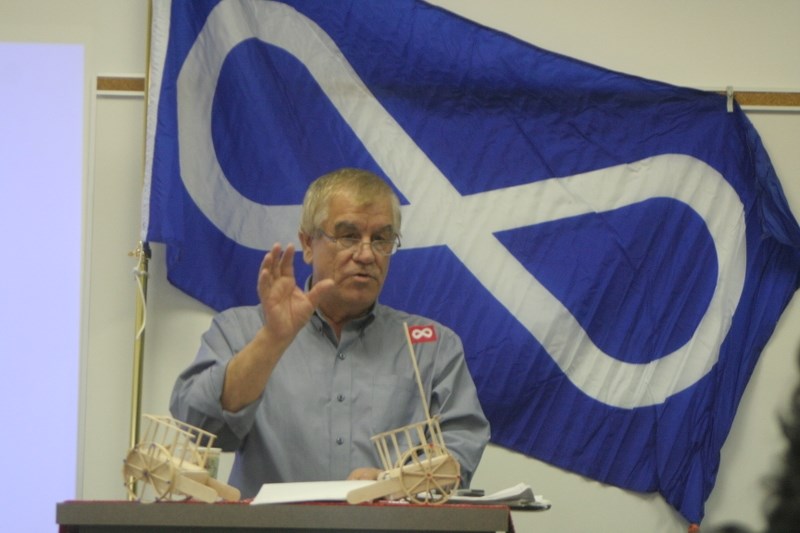Greatwest Article Template v.8 Double Click to Edit Details Write the text of the Article Below this Box
For years, Canadian historians and theorists have claimed there is no such thing as a Canadian identity anymore—prompting journalist Andrew Cohen to write, “The Canadian Identity, as it has come to be known, is as elusive as the Sasquatch and Ogopogo … It resists easy definition.”
And while this may be the case today, few can deny that of the many faces of pre- and post- Confederation Canada, — the trapping and hunting, fiddling and jigging — the Michif-speaking face of Metis culture was the quintessential Canadian identity recognized by Canadians and visitors alike for hundreds of years.
Metis culture was born in the 1600s when local Aboriginal fur traders intermarried with English and French explorers, creating a fusion of cultures that was wholly unique, with an influence on Canada that is still felt today. Over the years, the Metis in Alberta had many battles to fight for prosperity, land and autonomy, and last week, the Metis Nation of Alberta Region 1 in Lac La Biche gathered to celebrate everything they’d accomplished over the years and to look forward to their hopes for the future.
At a seminar held at Portage College last Friday during Metis Week—a week that included a number of events around Lac La Biche—local Metis luminaries came together to talk about where they had come from, and where they were going.
Diane Scoville, Region 1 vice-president, is fiercely proud of her heritage.
“We helped shape Western Canada, going back to the fur trade,” Scoville said.
“So many of our descendants were fur traders, and since we’ve all come together, Metis are recognized in Ontario, Alberta, B.C, Saskatchewan and Manitoba. There are 350,000 Metis that make up the Metis Nation.”
As for the biggest concern facing Metis today, Scoville says that Metis deserve the same industry consultation rights that other First Nations groups receive.
“We’ve always been here. This is our traditional homeland. The biggest issue facing Metis today is industry,” Scoville said, citing Canada’s leading document and its protection of the Metis, Indian and Inuit. “The oil and gas industry believes they don’t have to consult with Metis, even though we’re part of Section 35 of the Constitution Act,” she said.
In the midst of battling developers over proposed projects that will affect traditional Metis hunting grounds and trapping lines, Scoville says it’s imperative the Metis are taken into account by industry and government when developments on traditional land are taking place.
“We want consultation rights,” she said. “We want to be part of the table. We have to be involved in whatever they’re doing. We do have a lot of knowledgeable elders who have lived off this land for hundreds of years. It is our way of life—and it’s not just a way of life, it is spiritual. We live off the land, we respect the land.”
Joining many other speakers, Portage College president Trent Keough got up to say a few words about the true impact of Metis culture on Canadian identity.
“The definition of Canadian identity has always been based on the Charter members—English and French, Aboriginal peoples are charter members of Canada. As a nation, I don’t believe we’ve fully recognized the immense contribution of Metis culture in the creation of the Canadian psyche. The role and function of the Metis people has been, and continues to be, an integral part of the cultural identity of Canada.”


